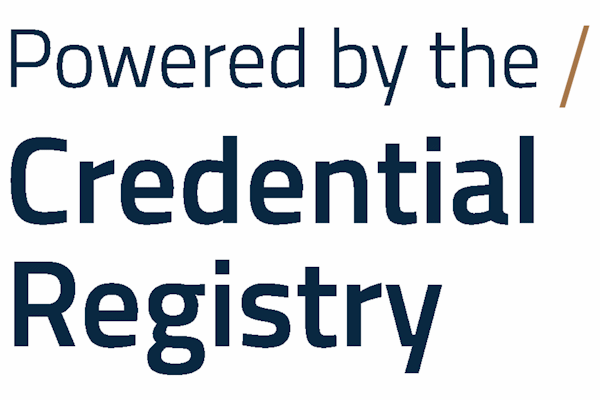Professional Certifications from Transformance Advisors
Current Situation
Let’s review the current situation facing people seeking a professional certification in Lean or Six Sigma.
- The historical approach to earning a Lean or Six Sigma certification is through a small education, training, and consulting organization. These types of organizations are typically focused on a niche specialty, such as Lean or Six Sigma. They are run and staffed by seasoned experts who have the experience and ability to transfer knowledge to their clients. These niche organizations have reached millions of people in all types of job functions and industries.
- A more recent addition, to the mix, comes from professional organizations representing a niche profession, such as quality control or manufacturing engineering. For these organizations, the professional certifications in Lean or Six Sigma have been a nice addition to their portfolio, as well as, a new revenue source. It’s unclear how much success these organizations are having. It’s even less clear if they are reaching beyond the job functions typically represented by their members.
- A recent phenomenon is a concept called Lean Six Sigma. There is widespread disagreement concerning the impact and value of this forced combination. Our team, at Transformance Advisors, is on the side of the debate which believes Lean Six Sigma is just marketing hype. This view makes some people angry. But, it’s clear to see how so-called Lean Six Sigma proponents are, generally, former Six Sigma trainers seeking to claim they have a new and improved program. Our assessment of the available Lean Six Sigma materials shows they are mostly Six Sigma with a few Lean topics added for good measure. These courses do not incorporate the far more important aspects of a what it takes to accomplish a Lean Transformation. In one example, a Lean Six Sigma Black Belt course only had 1 Lean concept on the entire agenda. The purveyors of that course were too lazy to even add the Principles of Lean into their course agenda.

Effects
Let’s explore the effects of the current situation.
- The two biggest process improvement techniques have been fairly robust in responding to new and emerging opportunities. The niche organizations have been the best at responding to market needs. It is unclear how the professional organizations have kept current. They seem to have invested in initial product development, but not in the need for rapid response to new developments.
- The old “Lean Manufacturing” has transitioned to “Lean Transformation” for all types of organizations. Lean is now the number 1 program used by retail, healthcare, financial, governmental, and other organizations. Only someone, who has been lost in woods for 2 decades, would refer to Lean Manufacturing.
- Six Sigma has also made the transition to service organizations. There are great success stories where the data analysis power of Six Sigma has been applied to the millions and billions of transactions in financial and healthcare organizations. We are also seeing enormous potential for Six Sigma to expand with the explosion of the concept called big data.
- Old habits die hard. Some of the Lean and Six Sigma tools, which offer minimal value, are still hanging around. We won’t get into the list, as it would just make a few traditionalists angry. It takes thoughtful discussion, and reflection, for people to let go of some tool they have used for 30 years. Now, they probably only use the tool in a training class and never use it during an improvement project. But – that’s the point!
- Seeking to take advantage of the situation, a number of organizations with low to no ethics have entered the scene. They may offer simple exams with nothing but true or false questions. One even falsely claims to be the “Official Industry Standard for Six Sigma Accreditation”. Another claims to be “a true independent third-party Certification Association within the Lean Six Sigma Industry” – whatever that means.

Response
The current situation and the effects on Lean and Six Sigma certifications has not gone unnoticed by our team at Transformance Advisors.
- We make significant investments in keeping our Lean and Six Sigma materials current and relevant. In the spirit of continuous improvement, we take a hard look at the topics and concepts included in various courses and certifications. It’s foolish to simply add more and more to any certification program – you need to, routinely, prune back the less relevant.
- We have completely integrated educational programs and certification exams. The relevant, current, and required knowledge is taught in our courses and tested on our exams. This approach leverages the historical advantages provided by niche organizations. A competitive advantage over programs which publish a list of one million topics which “might” be included on some exam.
- Our board of advisors takes an active role in assessing the content and quality of our programs. They bring perspectives which ensure we meet the needs of organizations seeking to improve their performance and the skills of their people.
- We push the envelope in terms of knowledge delivery. Our state-of-the-art learning management system is just one example where we have developed courses which leverage the latest technology.

Results
The results of our efforts have been tremendous.
- We have been designated by Manufacturer’s Edge, Colorado’s official Manufacturing Extension Partnership (MEP) Center, as the “go to” resource for Lean. Manufacturer’s Edge helps companies pursue funding for Lean training through Skill Advance Colorado Job Training Grants. Our Lean Transformation program and educational classes are ideal for these companies and match the requirements specified for obtaining the training grants.
- Our certification exams are routinely offered by schools, such as Loyola University Chicago, Louisiana State University Shreveport, the University of South Carolina Aiken, and the University of Northern Colorado. Additional schools are coming soon and will bring exponential growth.
- We have partnered with the International Supply Chain Education Alliance (ISCEA) to provide a comprehensive package of Lean and Six Sigma certification programs to supply chain professionals across the globe. See more at: ISCEA partnership.
- Our LeanToday Workshop is being held in cities across the United States.
- Our Lean and Six Sigma certification programs rank at the top for search engines.

Credential Registry
We are members of the Credential Registry, an organization dedicated to providing up-to-date information about all credentials, a common description language to enable credential comparability, and a platform to search and retrieve information about credentials.
The best credentials are found at the Credential Registry.
Learn more at Credential Registry.
Six Sigma Belts
Lean Education Standards
What is the Credential Registry?
Top Benefits of Lean Certification
Top Reasons to Earn a Certification
Subscribe to our newsletter
References
Counting Credentials by the Credential Registry
How To Decide If Professional Certificates Are Worth It by Indeed Editorial Team

